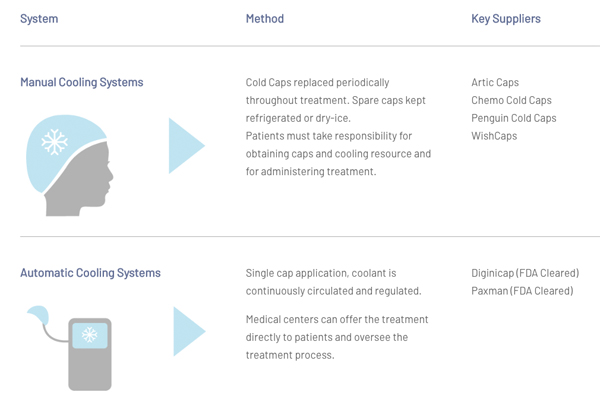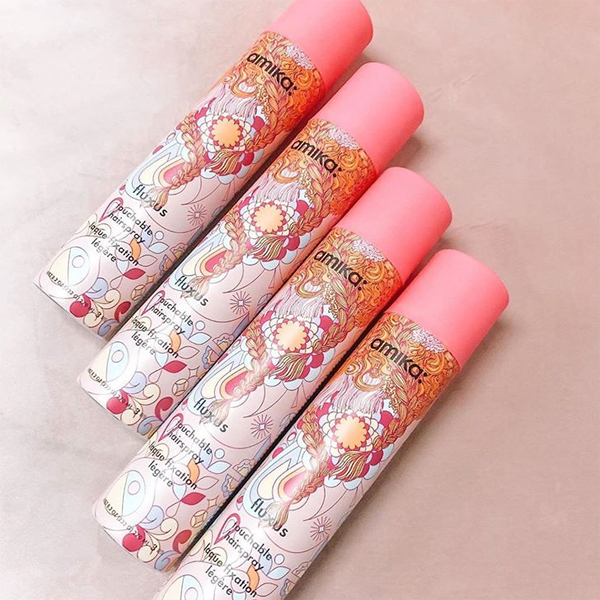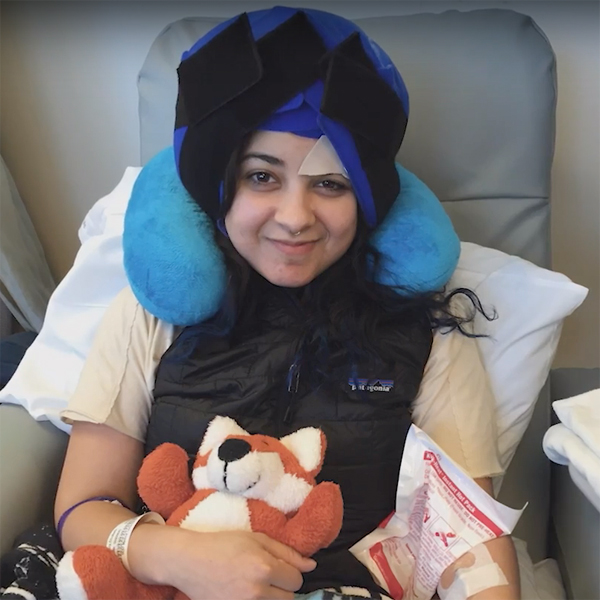How amika Is Helping More Cancer Patients Keep Their Hair
“It’s probably nothing. You’re so young and healthy.”
When Liz Acosta felt a lump in her breast, that’s what she—and her friends and family—thought. But Liz, who is in her early 30s, went to the doctor anyway. And she left with a breast cancer diagnosis.
The next day, the San Francisco resident was on an exam table at the hospital when the reality hit her. “I remember lying there and I started crying and thinking, ‘I don’t want to lose my hair,’” she said.
So many hairdressers have experienced cancer, whether it’s their clients, family members or even themselves facing the terrible disease. More than 1.5 million new cases of cancer will be diagnosed this year, according to the National Cancer Institute. That’s why pro haircare brand amika decided to do something.
A year ago, amika announced is partnership with HairToStay—the first and only national nonprofit organization that aims to increase access to and awareness for scalp cooling technology, which works to prevent hair loss during chemotherapy. The company donates 1% of its e-commerce sales to HairToStay, and this month, amika announced it would donate $1 from each bottle sold of its Limited Edition Fluxus Touchable Hairspray.
“It’s hard to believe that people aren’t aware that there is an option to keep their hair during cancer treatment. For solid tumor cancers, scalp cooling technology is a treatment option that we wish everyone knew about,” said Laura Eschricht, amika Vice President of Marketing. “From our perspective, we want to spread awareness for not only HairToStay, an organization that provides financial support for this treatment, but also for scalp cooling as a whole.”
Keep reading to learn more about scalp cooling technology, how it helps cancer patients and what you can do to support amika.
What Is Scalp Cooling Technology?
Scalp cooling is effective at reducing the amount of hair a person loses during chemotherapy, according to Bethany Hornthal, co-founder of HairToStay. Here’s why:
- The blood vessels in the head narrow as they get very cold. When it tightens, it doesn’t allow as much of the chemo to enter the hair follicle—in fact, it only allows 20% to 30% of chemo to enter.
- As a cell gets cold, its metabolic rate—or the rate that the cell replicates—slows down. Chemo targets fast-growing cells, because cancer is fast growing…but so is hair. Chilling hair cells makes them less vulnerable to the toxicity of chemo.

Cold caps have been used in Europe for nearly two decades but only recently gained FDA clearance in the U.S. And it’s expensive. “A patient will normally pay between $1,200 to $3,000 for their total course of [cold cap] treatment,” Bethany said. It’s not covered by most insurance carriers and can be cost prohibitive to people with cancer, especially when medical treatment is already so expensive.
There are two types of cold caps that vary in how they’re used and how much they cost to get and administer. Manual systems come with a series of caps that must be chilled on the same premises as where the chemo is administered, then switched out every 30 minutes during treatment. Automated caps utilize coolant and technology to keep the caps at a constant temperature to make the process easier to administer. Hospital staff must know how to use the devices, but more and more medical centers are starting to implement the technology in their infusion centers, including large hospital systems like City of Hope, MD Anderson, USCF Medical Center and Memorial Sloan Kettering.
Cold cap manufacturers charge rental fees or by the treatment, and some hospitals tack on costs to administer cold cap treatment. It’s not a comfortable process and is tough to undergo. So why do it? Because for many people, losing their hair can feel almost as scary as cancer.
Hair Is Crucial To Maintaining Identity
“Hair is identity,” Bethany said. Anecdotally, Bethany reports hearing from cancer experts that many people have second thoughts about chemotherapy because they don’t want to lose their hair, and when presented with chemo treatment options, their first question is almost always about hair loss. One recent study showed that at least 8 percent of women would decline potentially life-saving chemotherapy due to fear of hair loss.
“You go through this treatment, and everybody knows, and you’re wearing a wig or scarf,” Bethany said. “Many of the women we work with have young children, and it’s traumatizing to children to see Mommy go bald, and it’s traumatizing to the mother for her children to ask her, ‘Are you dying?’”
Hairdressers have a unique position in helping clients make it through this insanely difficult time. “One of the first people to find out that a person has cancer is the stylist,” Bethany said. “They’re often asked to do the ‘chemo cut.’ They’ve known these people for a long time, when they’re washing their hair and it’s falling out in clumps in the bowl, what do you say?” Bethany said. “Stylists get it. They understand what hair means to people, and what not having it means to people.”

amika Lead Pro Trainer Tiffany Chiapparelli knows this firsthand. A longtime client of Tiffany’s recently passed away as a result of breast cancer, and Tiffany was among the client’s most trusted circle.
“She was the best client ever,” Tiffany said. “The first time I did her hair, I went to her house for six hours. She only had three inches of hair growth, so I did individual extensions—8 bundles, 25 pieces per bundle. I colored, cut, blended. I went to the beauty supply store with her. I taught her how to do her hair again because she was wearing a wig before that. When she finally saw herself after, she couldn’t be happier.”
Tiffany worked hard to be there for her client’s every need—whether it was hair-related or not. “She had me come to the hospital two days before she passed away to do her root touch-up,” Tiffany said. “She didn’t want anyone else to see that she was sick, but she was very open to me. It was like, ‘Maybe my insides are crumbling, but look how amazing I can look.’”
Tiffany was devastated when she lost her client, but feels grateful to have been able to help. “At her funeral, her husband saw me and said, you have no idea what you did for my wife the last few years, mentally speaking,’” she said. “We’re hair doctors. If the hair is sick, we want to make it better. It was an incredible experience to know her.”
Keeping Hair Through Chemo
For Liz (who is now cancer-free!), keeping her hair was a crucial part of her treatment. “As a woman of color, hair is more to me than just what’s on my head,” she said. “I have very textured hair that’s kind of a little crazy and as a kid I struggled so much with it. I’ve gotten to a place where I really liked my hair and so to struggle to get to that place and then find out I could lose it… that was probably one of the most devastating parts of getting the diagnosis.”
Liz contacted HairToStay and received a subsidy to help pay for her cold cap treatment. She used a manual treatment, 14 caps kept in a biomedical freezer that a friend helped her switch out every 30 minutes to keep her scalp at -32 degrees. And it didn’t feel good. “When they first put that cap on me I almost backed out because it was probably one of the most miserable experiences of my life,” she said.

But she was determined to keep a part of herself intact. “Every day I looked at myself and I didn’t see a sick person. Cancer is such a sinister illness. It requires so much courage and strength,” Liz said. “If I lost my hair as well…I don’t know if I would be here and as healthy as I am without it. It really made that much of a difference.”
Liz was able to keep about 85 percent of her hair by using cold caps, and she’s been in remission for over three years.

How HairToStay Helps
Bethany and HairToStay get it, just like hairdressers get it. The company works with cold cap manufacturers to lower costs, and raises money to provide subsidies to cancer patients who want to keep their hair. The company has offered more than 1,500 subsidies of about $1,000 each to help in this mission.
“I knew nothing about this industry,” Bethany said of the professional hair industry. She met amika CEO Shay Kadosh at a trade show because she was drawn to amika’s brightly colored, super cool booth. “I said to Shay, ‘You gotta help me,’ and he said, ‘What do you need?’” Bethany said. “And he’s literally said that same thing to me every time I’ve talked to him. amika has become the most incredible partner. It’s one thing to do a one-off campaign, but cancer affects people all year long. They have been so incredible, and we feel unbelieveably fortunate to have found amika.”

Besides donating $1 of every can of Limited Edition Fluxus Touchable Hairspray sold and donating one percent of all sales from its website, loveamika.com, to HairToStay, amika encourages its salons to host events to donate services or tips and facilitates client donations. Additionally, when customers check out on the brand’s website, they have the option to add between $1 and $10 to go directly to HairToStay.
“Our hope is that as we develop these conversations around the organization, more patients will have access, and even the knowledge, to request scalp cooling technology as part of their treatment plan and that many more hospitals will make it available,” Laura said.
For more information on amika’s partnership with HairToStay and how you can help, email salons@loveamika.com or DM @amikapro.






